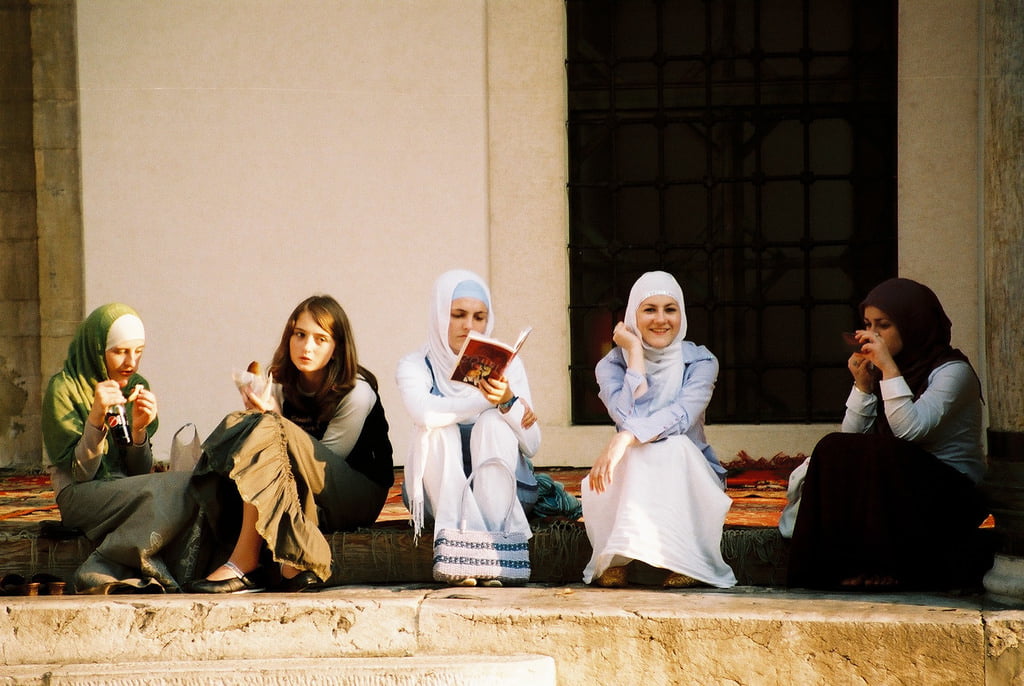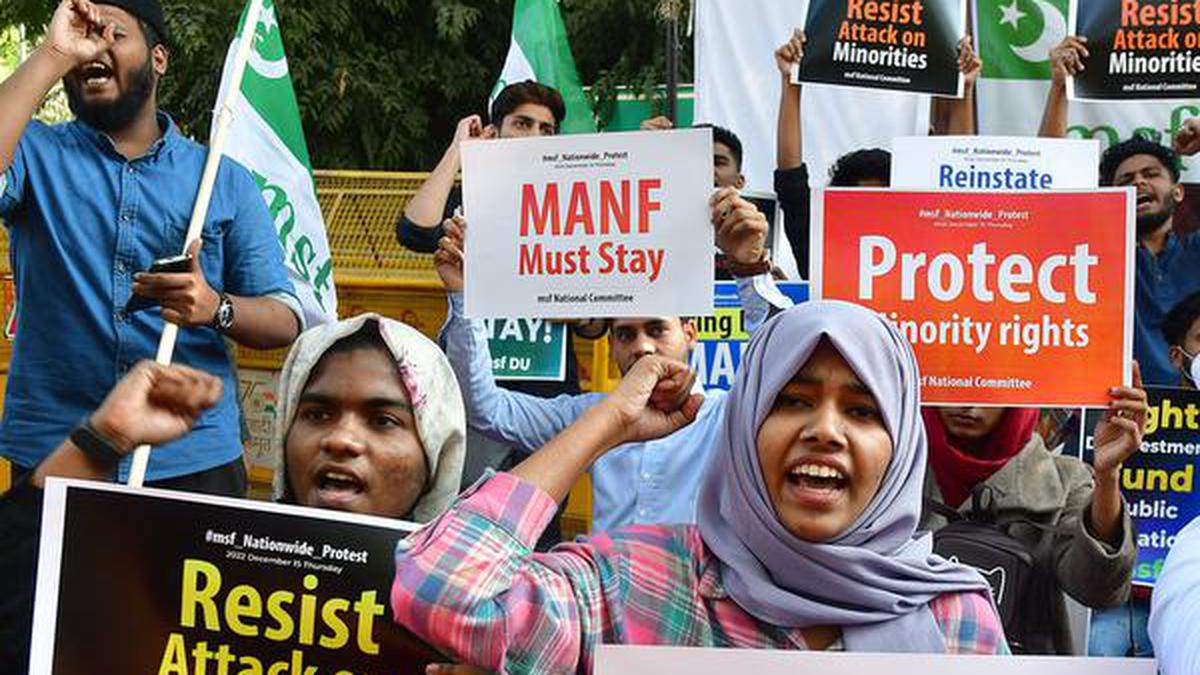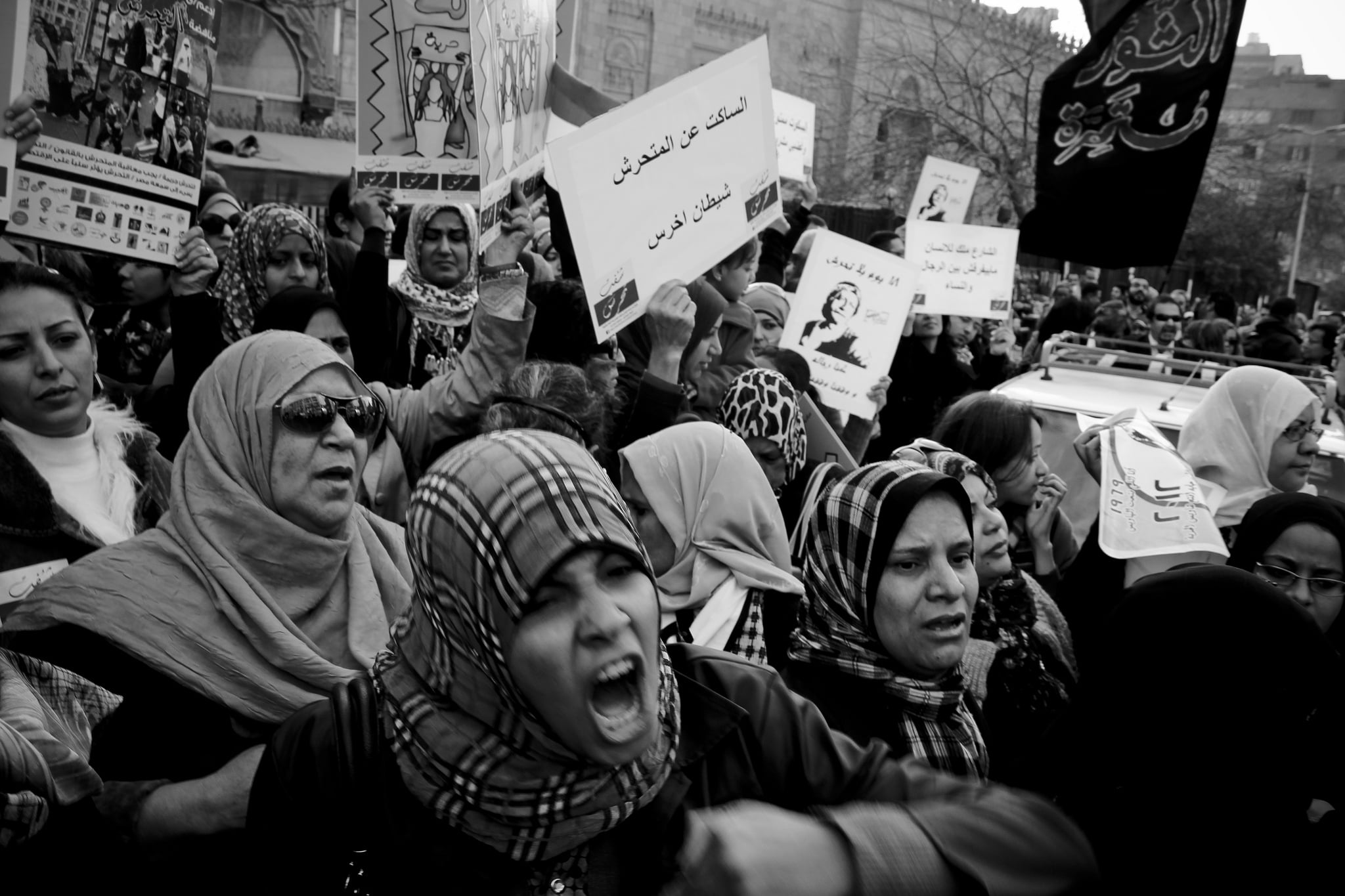The question of female sexuality is an extremely important one in Islamic discourse. It is also one of the most controversial and debatable topics. What is commonly found is a widespread misconception with regard to women’s sexual rights under Islam.
In common discourse, Muslim women are perceived to be an oppressed lot. It is a widely held belief that Islam enjoins upon its female believers a sacred and unalterable duty to protect their bodies from the unwanted male sexual desires and to keep their sexuality and sexual desires firmly under wraps.
The hijab (headscarf), the niqab (veil covering one’s face) and burqa (flowy garment covering the whole body) are often pointed out as Islamic tools that seek to put under restraints a female’s sexuality. Interestingly, while the niqab and the burqa are still forced upon women in extremely conservation Islamic countries, they have largely been shunned by Muslim women in open, liberal societies.
Also Read: The Hijab Unveiled: Three Theological Reasons That Led To Me Abandoning The Hijab
The debate over the hijab however continues to rage as more and more educated and progressive women continue to opt for it, even on the face of a ban in some western countries on the same. While many modern Muslim women defend the wearing of hijab as a personal choice emanating from the desire to hold on to their distinct socio-cultural and religious identity, a majority see the same as a symbol of sexual subjugation.
While it is undeniable that Islam as a whole places a lot of emphasis on a woman’s honour and sexual sanctity, it is equally true that Islam is not a uniform religion and beliefs and practices associated with it vary in nature with regard to different geographical and cultural contexts in which it is found. In liberal societies, many Muslim women question as to why their choice to cover their heads be treated any differently from their choice to bare their bodies if they so desired. They do not find contradiction in choosing to cover their heads while exercising control over their bodies and sexuality in ways that the conservative Islamic societies would label “un-Islamic”.
Also Read: One Young Muslim Woman’s Powerful Spoken Word Poem About Her Choice To Wear The Burqa
Different schools of thought and different sects within Islam interpret the spiritual and temporal scheme of things with regard to the religion in divergent ways. It is also believed that certain practices within Islam are the result of intermingling of local customs and practices of the regions conquered by early Islamic warriors with those of Islam. Also, certain practices related to women are termed pre-Islamic in nature; practices that Islam failed to annihilate completely.
In this context, it can be pointed out that the practice of female genital mutilation (FGM), which is widely practised in Asia, Africa and the middle East neither finds mention in the Qur’an nor uniform endorsement within the Islamic world. FGM, which can crudely be described as the cutting up of a female’s genitalia in order to control her sexuality is denounced by many sects within Islam as un-Islamic.
In fact, there is no bar on Muslim women from enjoying sex even though the enjoyment of the same is justified solely within the confines of a legal Islamic marriage. Nevertheless, nowhere in Islamic discourse is the enjoyment of sex by women prohibited or means advocated to curb the same.
MaNY Muslim women asK why their choice to cover their heads be treated any differently from their choice to bare their bodies if they so desired.
The Qur’an and the Hadith, both lay stress on the importance of a woman’s sexual satisfaction. Interestingly, there is also a frank discussion on “foreplay” in the Qur’an. Prophet Muhammad advocated foreplay between couples and commented that: “None of you should fall on top of his wife like way animals fall on each other… If the man finishes first he should wait for his wife until she has also finished.” To a great extent, this can be interpreted to mean that women should not be ashamed of their sexuality and sexual desires as Islam perceives sex between couples as something that should be mutually satisfying to both the partners.
Unfortunately, premarital sex and sex outside of a marital bond are considered sinful and prohibited, thus limiting a Muslim woman’s choices over her body and sexuality outside the realm of the institution of marriage. In the same context, alternate sexuality is also frowned upon. The positive aspect with regard to sexual and reproductive health is that Muslim women do have choices with regard to their bodies.
Islam permits the use of contraceptives to prevent unwanted pregnancies. It is also imperative for a man to use the same only with the permission of his wife. Abortion is allowed in Islam and though different schools of thought and different sects differ on the subject, it is generally accepted that abortion is allowed up to 4 months of pregnancy. Some scholars are of the opinion that certain grounds like danger to the health of the mother or suspected deformity in the unborn child makes abortion at any stage of the pregnancy permissible.
Nowhere does Islam specifically mention or ban abortion. Different verses within the Qur’an have been interpreted to support the claim that abortion is impermissible. One of such verses which states, “And do not kill your children for fear of poverty. We give them sustenance and yourselves (too): surely to kill them is a great wrong” (17:31), is actually believed to refer to female infanticide that was rampant in pre-Islamic Arab. The Hanafi school of Islam permits abortion without the husband’s permission provided there are reasonable grounds for the same.
The Qur’an and the Hadith, both lay stress on the importance of a woman’s sexual satisfaction.
The inherent tension with respect to sexuality in Islam is that while sex and female sexuality as a whole is not considered a shameful subject to be brushed aside, the lack of inhibition on the part of a female with regard to her body and sexuality is commonly perceived as un-Islamic. Sexualised and sexually-aware Muslim women who wear their sexuality on their sleeves are often looked down upon. In this Islam suffers from the problem of narrow interpretation of the holy scriptures.
The clerics and Islamic scholars maintain that Islam enjoins gender equality and that the welfare of women is the focal point of the scheme of things pertaining to the role of the genders in society. With the expansion of Islam, women in Islamic societies began to enjoy socio-political and financial autonomy to a degree that was unheard of in the pre-Islamic era.
Also read: Reading Feminism And Islam: A Starter Pack
In other words, welfare of women was the central premise of the Islamic rules pertaining to them. With the passage of time, the concept of welfare of women has changed. Women want a greater autonomy over their lives, bodies, sexuality, and destiny. It is but prudent that the basic premise or sentiment should prevail over narrow notions of blindly adhering to out-dated and out-of-context practices that no longer coincide with the present social realities.
Featured Image Credit: Kashfi Halford





So “Sexualised and sexually-aware Muslim women who wear their sexuality on their sleeves are often looked down upon.” basically means slut shaming. Stop justifying it
“In this Islam suffers from the problem of narrow interpretation of the holy scriptures.”
This is the very next line to the one you have mentioned in your comment. This definitely does not count as justification of the mentioned line or any sort of slut-shaming. The intention of the article is to dispel the common misconception regarding female sexuality in Islam in order to remove the taboos associated with it. Nowhere does the article justify malpractices related to women. The last paragraph categorically and unambiguously states that interpretation of sacred texts should be in consonance with what women themselves perceive as good for them and not merely adhering to age-old notions of right and wrong endorsed by patriarchy.
??? You don’t know anything. Just stop justifying the third wave feminism. If Islam is so open about females and care about them, why there are no female deities ? Why Yazidi girls are being sold like mere cattle ? Why Love Jihad is gaining popularity ? Why Polygamy is allowed ? Why it’s the fastest growing religion ?
I agree that wearing Hijab is entirely women’s choice, but defending the imposed Hijab and saying that Islam supports Feminism is so cringeworthy that it makes me puke. What you’re supporting is pseudo feminism. Supporting Feminism was Iranian women opposing Hiajb. And do read Quran. You will find it utterly fascinating and noteworthy.
lol..deities? stop giving us freedom version of american freedom ” we want to be free in the way we want you to be free” that’s why america is not happy with russia because they are not democracy in the way america want them to be democracy,it looks like america has feed you their bullshit well.
if in hinduism you really worship woman then how is it that most of hindu woman raped by hindu man that too gang rape?
Is it that you worship woman or her genitals only?
how is that in every hindu deity pair,woman was always shown as a “taking care salve” of their male counterpart?
how is that krishna had 16000 wived but mo woman deities were allowed?
keep your american feed bullshit to yourself,you are fooling no one.
“choice”?freedom? what freedom?
In Islam there both freedom and use of force is clear cut determined by god which can’t be changed,.
what about hinduism?or should i say way of life? first you say its way of life then you start to gave me exception of it?how is that mathematically possible? Is it not that “way of life” incorporated all kinds of way be good or bad? oh i forgot,there is no good karma or bad karma in so good hinduism right?
hinduism is all about singing do good be good” bullshit.
how you dom good?how you be good?
because for america being good means being good slaves to them which you people are good are at,claiming you had billion trillion years of rich cults then being modern following americans like sheep don’t really make sense.
as for as freedom,where is julian assange?where is edward snowden?i guess they don’t get the chance to be free because you lord america doesn’t like their freedom?The definition market is controlled by america i guess..
Next time don’t give choice freedom bullshit you don’t understand about,don’t use imported word and LOLgic,these broken casets we have heard many times,if you can’t form your own logic then go to side line.
The truth has never been spread by choice by freedom and choice,it has always been spread by force.
you know why?
because human is always scared of truth,truth is bitter.
The moment human starts screaming at the top of their lounges saying “we want the truth”i is the very moment they start with a lie.
Human always loves comforting lies over bitter truth,this is human nature,so basically the truth is exactly opposite of human nature and desire.